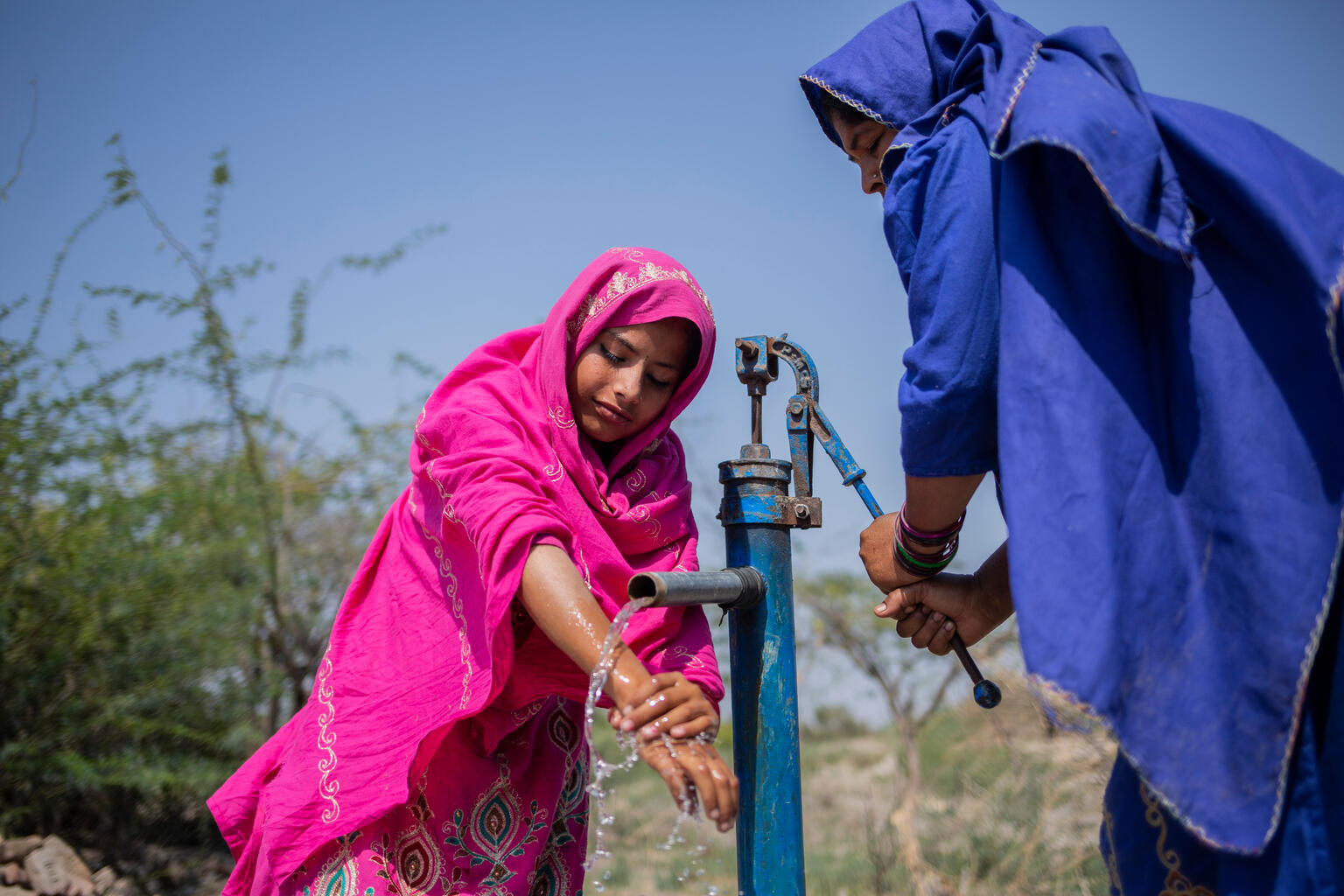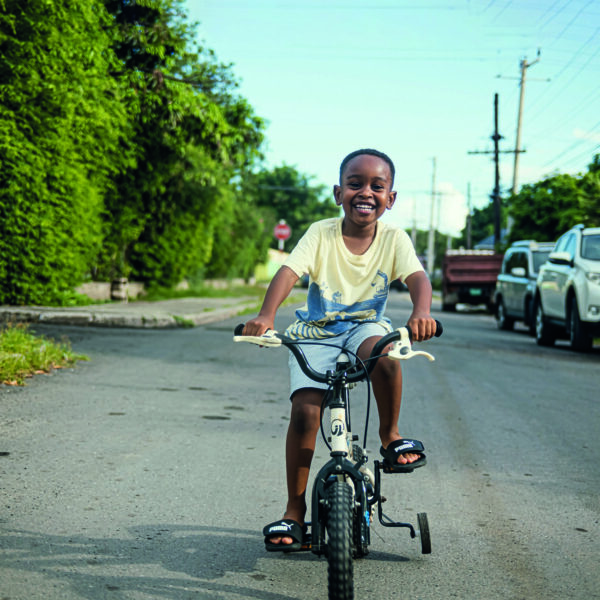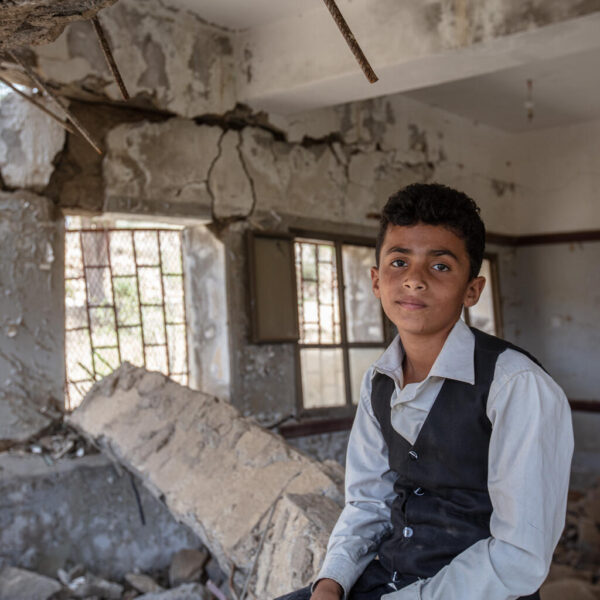Why safe water, proper sanitation and good hygiene matters
Water and sanitation are basic human rights. Yet, 2.2 billion people globally still lack access to safe drinking water. This means many children are at risk of water-borne diseases such as dysentery, polio and typhoid every time they take a sip.
Rights do not exist independently of each other. When children spend hours every day collecting water, it can come at the expense of their education.
Children also need proper sanitation and the facilities to practice good hygiene. Almost half the global population does not have access to safe sanitation. This makes children more vulnerable to pandemics and other contagious diseases.
This is fundamentally a question of global inequality. It is simply not right that one child should have access to safe drinking water, and another shouldn’t because of where they were born.
We are determined to change this. We’re working with governments in more than 100 countries to build WASH systems that endure, that last. In emergency situations, we coordinate with humanitarian organisations and governments to provide life-saving WASH support. And as our climate changes, we’re helping communities to be prepared for future challenges
Access to safe water helps more children go to school
In Malawi, 14-year-old Steven had to walk almost two kilometres from his house to collect water from a murky well, and was often too sick or tired to go to school. A solar powered tap installed by UNICEF in 2021, allows 14-year-old Steven to safely collect water near his home.
“I felt relieved. Now I could go to school early and concentrate on the lessons instead” Steven Mariko
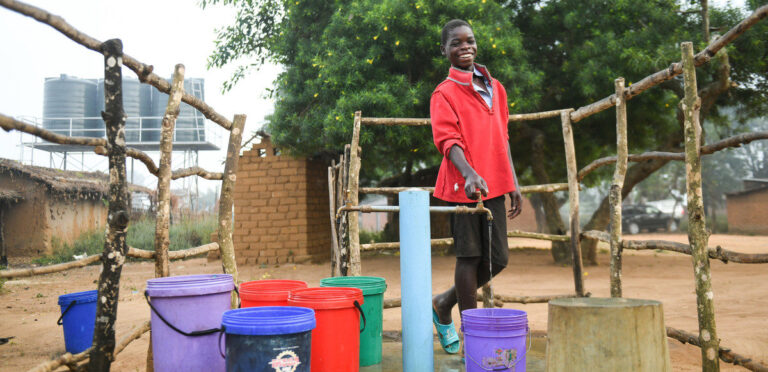
A UNICEF-installed solar powered tap allows 14-year-old Steven to safely collect water near his home.
UNICEF/Flynn
Enabling more girls to stay in school in Zambia
Fetching water is sometimes viewed as a ‘domestic’ task. Therefore, it is often young girls who have to walk the long miles to the water source, while their brothers’ receive an education. Providing safe and equal access to water is therefore also a prerequisite for greater gender equality in many communities.
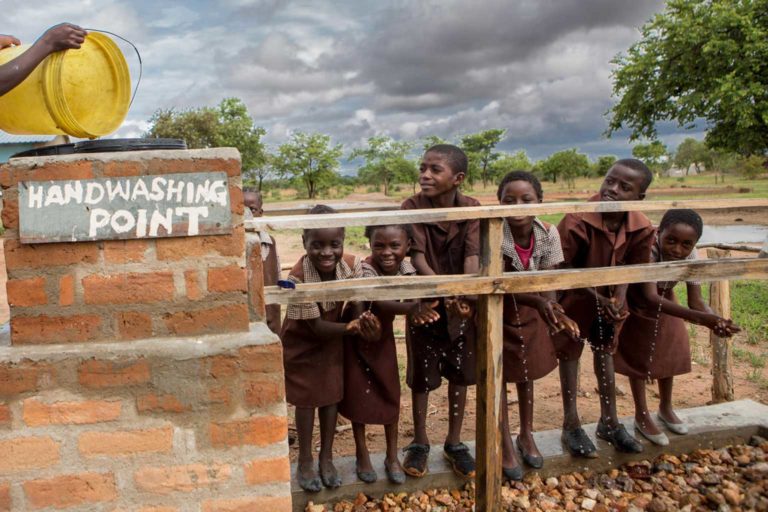
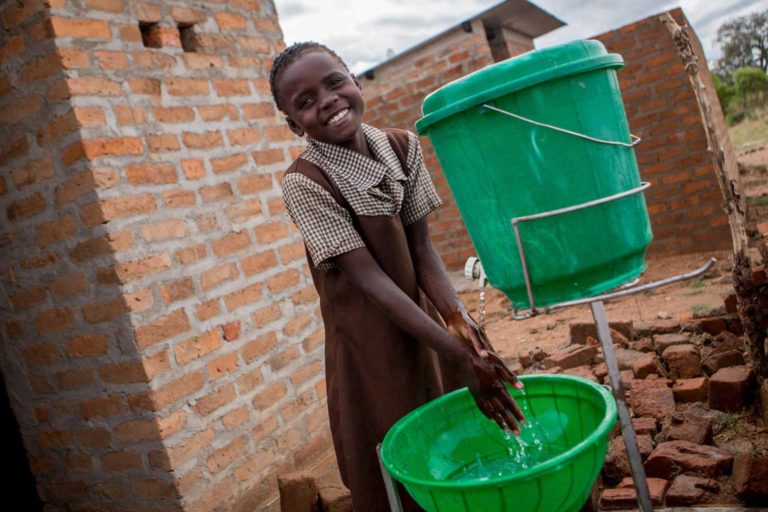
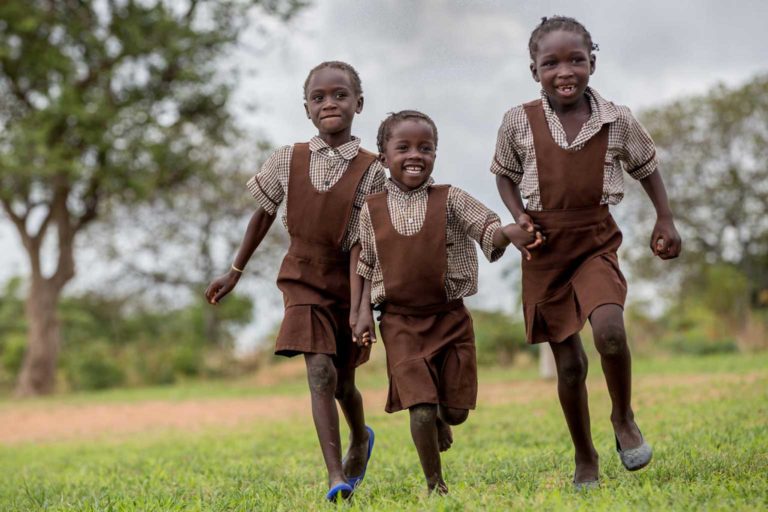
Building clean water systems that last
We’re working to ensure children can access safe water, sanitation and hygiene throughout childhood, in their homes, schools, health facilities and communities.
In 2022, we helped 26 million people gain access to at least basic sanitation services, 30.6 million to basic water that is safe and available when needed and 23.6 million to basic hygiene.
In places like Malawi, we’re using solar power to transform water access for the most remote communities. We constructed 1,855 such water systems in 2022. And we also empower people with information about hand-washing, menstrual hygiene and waste disposal.
By developing infrastructure and understanding, we’re working to progressively improve WASH services around the world, so that children and their families can thrive.
1 billion
Our goal is to support 1 billion people gain access to safely managed sanitation by 2030
WASH in emergencies
During conflict and disasters, children often lose access to clean water and a safe, hygienic environment. Whenever this occurs we lead the response, coordinating humanitarian organisations and working with governments to rapidly provide life-saving supplies and support.
Last year, civil war in Sudan forced hundreds of thousands to flee their homes, a situation which has since spiralled into the world’s largest child displacement crisis. 4 million children have been uprooted from their homes. Many now live in temporary camps with water and sanitation needs critically unmet.
This has widespread implications. For example, women and girls’ menstrual health has deteriorated curtailing their dignity and increasing their risk of infection. Meanwhile, water-borne diseases such as cholera are on the rise and, with health services already overstretched, the consequences are likely to be devastating.
UNICEF have been on-hand since the start of the emergency, providing water purification tablets, supporting hygienic waste management and disseminating sanitary information and supplies through mass campaigns.
As the conflict continues, we’re continuing to respond to the precarity of the situation with interventions that will ensure the long-term safety of those whose lives have been turned upside down.
Learn more about our emergency response.
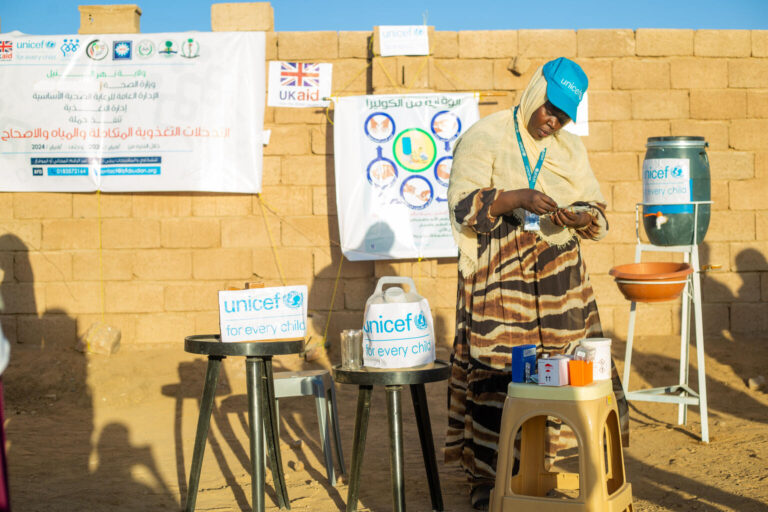
Our community volunteers are able to provide friendly and culturally sensitive support in refugee camps where sanitation is poor and access to safe water limited.
UNICEF/Mohamdeen
Water and children in a changing climate
Our planet’s climate is changing, causing erratic weather and rising sea levels. The quality and quantity of water, that children rely on for survival, is under threat. By 2040, 1 in 4 children will live in areas with extremely high water stress.
In 2022, the floods in Pakistan deprived children of a safe environment and cause water-borne diseases. Droughts in East Africa have forced children to walk long distances in search of water. And, in the Pacific, rising sea levels are causing salt water to infiltrate water supplies, making them undrinkable.
We’re protecting children’s access to safe water, sanitation and hygiene, now and for the future. We help to develop technologies, like drought-resistant deep wells and flood-resistant toilets. And we’re working with governments to make sure children are at the heart of climate discussions and decisions.
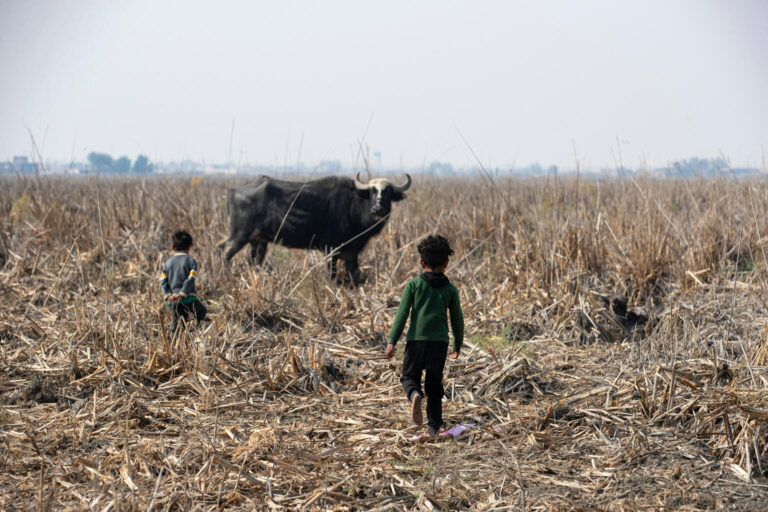
The Al-Chibaish Marshlands in Iraq were once thriving havens of biodiversity. They are central to the ancient culture of the Marsh Arabs, but drought, water pollution, oil extraction, and dam construction have led to the drying up of marshes, forcing inhabitants to abandon their traditional way of life.
UNICEF/Faleh
YOU CAN HELP US REACH MORE CHILDREN WITH SAFE WATER, PROPER SANITATION AND GOOD HYGIENE
A monthly gift from you can help us continue saving and improving children's lives, now and in the future.


